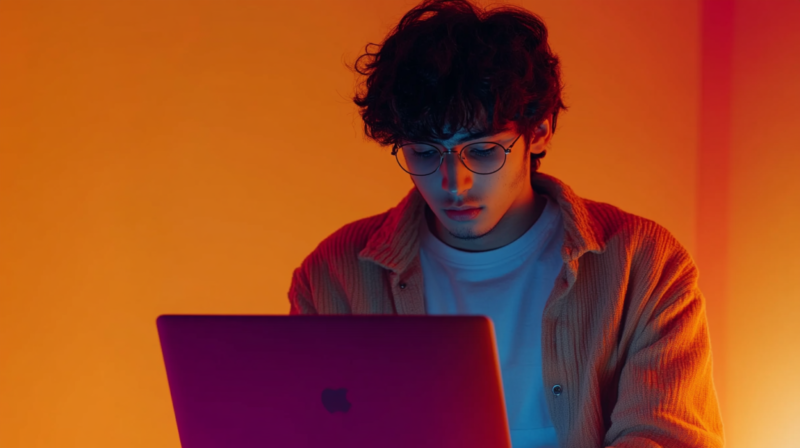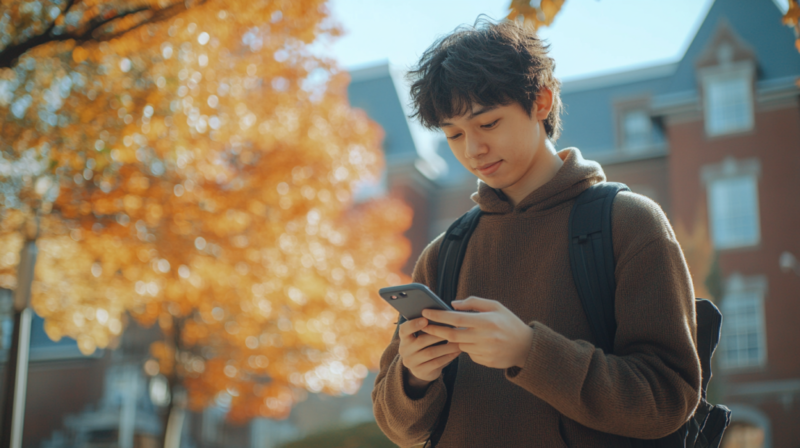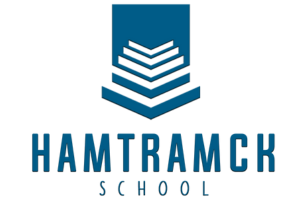Free education opened a door in my life when funds were tight and curiosity was high. I discovered a world where knowledge flowed without a price tag, and every lesson felt like a step toward a brighter future.
Over the years, I have explored online courses, local libraries, community centers, and digital media—all offering endless opportunities to learn, grow, and create without financial constraints.
I remember the first time I stumbled upon a free online course on computer programming. I had been searching for ways to improve my skills without breaking the bank, and a friend mentioned a platform that offered quality lectures at no cost.
Soon after, evenings were filled with video lessons, interactive exercises, and lively discussions with peers from all over the globe. Free education wasn’t just an alternative; it became a lifeline that reshaped my ideas about learning and self-improvement.
A Personal Tale

My journey began when traditional learning seemed out of reach due to high fees and rigid schedules. I turned to digital platforms and community resources, and the transformation was astounding.
I discovered that the power to learn did not belong only to those who could afford expensive courses. Instead, every curious soul could access lectures, tutorials, and materials that opened up new worlds of possibility.
I recall how my evenings started to fill up with discovery. Sitting in a quiet corner with my laptop, I explored various subjects—from the basics of coding to creative writing and art history.
Each topic offered its own rewards, and I started to see that learning was not about the cost, but the passion and commitment behind it. A few aspects that made my experience unforgettable include:
- Quality Content at No Cost: High-caliber courses created by respected institutions provide a wealth of knowledge without a tuition fee.
- Global Community Connections: Online forums and social media groups connected me with learners from diverse backgrounds, sparking enriching conversations.
- Freedom from Financial Worries: The absence of fees meant I could focus entirely on absorbing new information and experimenting with ideas.
- Boost in Confidence: Every skill acquired, no matter how small, reinforced my belief that learning can truly empower anyone.
Power of Free Education
@bron_existing Access to free education is a right, and it’s a right we can afford as a county if our budget is allocated correctly and authorities are held to account This is a complex matter and I haven’t even begun to get into the corruption of NSFAS and the issue or privatized student accomodation We have to stand with the students experiencing financial exclusion 🥺 #feesmustfall #studentprotest #uct #wits #stellenbosch #nsfas ♬ original sound – bron_existing
For me, free education symbolizes a revolution in how knowledge is shared and acquired. It represents a move away from the idea that learning is a privilege for a select few and moves toward a model where education is a universal right.
The power of accessible learning lies in its ability to break down barriers and build bridges among communities, regardless of income, geography, or background.
Some core beliefs I hold about free education include:
- Unrestricted Access: A simple internet connection or a visit to a public library unlocks access to countless resources. Online courses, digital books, and video tutorials are available for anyone willing to explore.
- Empowerment Through Knowledge: Gaining new skills boosts self-confidence and creates fresh career possibilities. When one acquires knowledge, the power to change life circumstances becomes real.
- Lifelong Learning: Free education is not confined to a particular age or stage of life. Learning can occur at any time, sparking creativity and resilience in unexpected ways.
- A Culture of Sharing: Open educational resources thrive on collaboration. Experts and enthusiasts contribute to forums, create tutorials, and offer advice, cultivating a vibrant, ever-growing community of learners.
I have learned that free education is far more than a cost-saving measure; it is an invitation to grow, connect, and transform one’s future.
A Walk Through History
View this post on Instagram
The idea of sharing knowledge without charge is not a modern invention. Long before the internet existed, public libraries and community centers served as hubs of learning and connection. Generations have benefited from environments where books were freely available, and community lectures opened minds to new ideas.
Key Moments That Shaped Free Education
- The Era of Public Libraries: Local libraries became places where people of all ages could borrow books and explore new ideas. They nurtured a culture of curiosity that transcended economic barriers.
- The Digital Revolution: The transition from paper to pixels changed the landscape completely. Online platforms now offer entire courses and educational materials that anyone can access instantly.
- Social Movements for Equality: Activists and community organizers fought for equal access to education, laying the groundwork for initiatives that provide learning materials without fees.
- Government and Institutional Support: Many universities and governments have launched programs aimed at offering free courses, further erasing the lines between formal education and self-guided learning.
These milestones remind me that the drive to share knowledge is as old as learning itself. Every step taken toward making education free and accessible has built a legacy that empowers millions around the world today.
The Many Benefits of Learning Without Limits

There is a certain magic in acquiring knowledge without the burden of fees. In my experience, free education has opened up new career paths, sparked creative projects, and provided a sense of community among like-minded individuals. Some of the most significant advantages include:
- Universal Reach: Anyone, regardless of economic means, can explore a diverse array of subjects—ranging from technical skills to creative pursuits.
- Financial Freedom: When education comes without cost, there is no need to worry about loans or debt. The focus shifts entirely to learning and personal growth.
- Flexibility and Convenience: Digital courses and online libraries allow for learning at a pace and on a schedule that fits individual lives. Whether it is early in the morning or late at night, opportunities abound.
- A Rich Tapestry of Topics: Open learning platforms cover an astonishing range of subjects. One can study art history in the morning, pick up a coding skill in the afternoon, and relax with a podcast about philosophy in the evening.
- Building a Community: Online groups, local workshops, and interactive platforms create a sense of belonging. Sharing ideas with others not only enhances the learning process but also builds lasting friendships.
- Empowerment and Confidence: Every time I mastered a new skill or completed a course, I felt more empowered to take on new challenges. Knowledge became a tool to forge a better future.
These benefits have reinforced my belief that education should be accessible to all, and every lesson learned contributes to a more informed and connected world.
Practical Ways to Tap Into Free Education
A wealth of options awaits anyone willing to explore the world of open learning. Over time, I have found several avenues that offer quality educational resources without the need for payment. Here are a few practical suggestions drawn from my own journey:
Online Learning Platforms
Digital platforms have been a game-changer, providing access to courses on almost any subject imaginable. Among the ones I often visit are:
- Coursera: Offers a variety of courses from reputable universities. Many classes are free, and optional certificates provide extra motivation.
- edX: Features a rich selection of academic and professional courses created by experts from around the globe.
- Khan Academy: Known for its user-friendly videos and interactive lessons, this platform is perfect for learners of all ages.
- MIT OpenCourseWare: Grants access to course materials from one of the world’s leading technology institutions, making high-quality education available to everyone.
Public and Community Resources
Local libraries and community centers have long been beacons of accessible learning. I often visit my neighborhood library not only for books but for workshops and digital media sessions.
Community centers frequently host events that cover a wide range of subjects—from digital literacy to creative arts. Municipal initiatives also provide free training sessions and skill development workshops that can prove invaluable.
Digital Media and Mobile Apps

The Internet has a way of bringing information directly into your hands. Some of my favorite ways to learn on the go include:
- YouTube Channels: Numerous channels offer free tutorials, lectures, and expert discussions on subjects as varied as history, science, and art.
- Podcasts: Audio programs provide insightful commentary and lessons that can be enjoyed during commutes or while taking a break.
- Mobile Applications: Interactive apps allow for engaging exercises in language learning, coding, or even mindfulness practices—all accessible via a smartphone.
Each of these methods has allowed me to create a personalized learning schedule that fits into the rhythm of daily life.
In Conclusion
Free education has not only enriched my own life—it has redefined what it means to learn and grow. Every online course, every visit to a community center, and every discussion with fellow learners has contributed to a journey filled with possibility and transformation.
As technology continues to evolve, the future of education promises even greater accessibility and innovation, making knowledge available to more people than ever before.
The freedom to access quality knowledge without a price tag is a testament to the power of sharing and collaboration.
I invite anyone who seeks personal growth to explore the vast world of free education. There is a universe of resources waiting to be discovered, offering lessons that inspire, challenge, and empower.
Every step taken along this path adds a unique chapter to your personal story, building a future where knowledge is truly a right and not a privilege.

